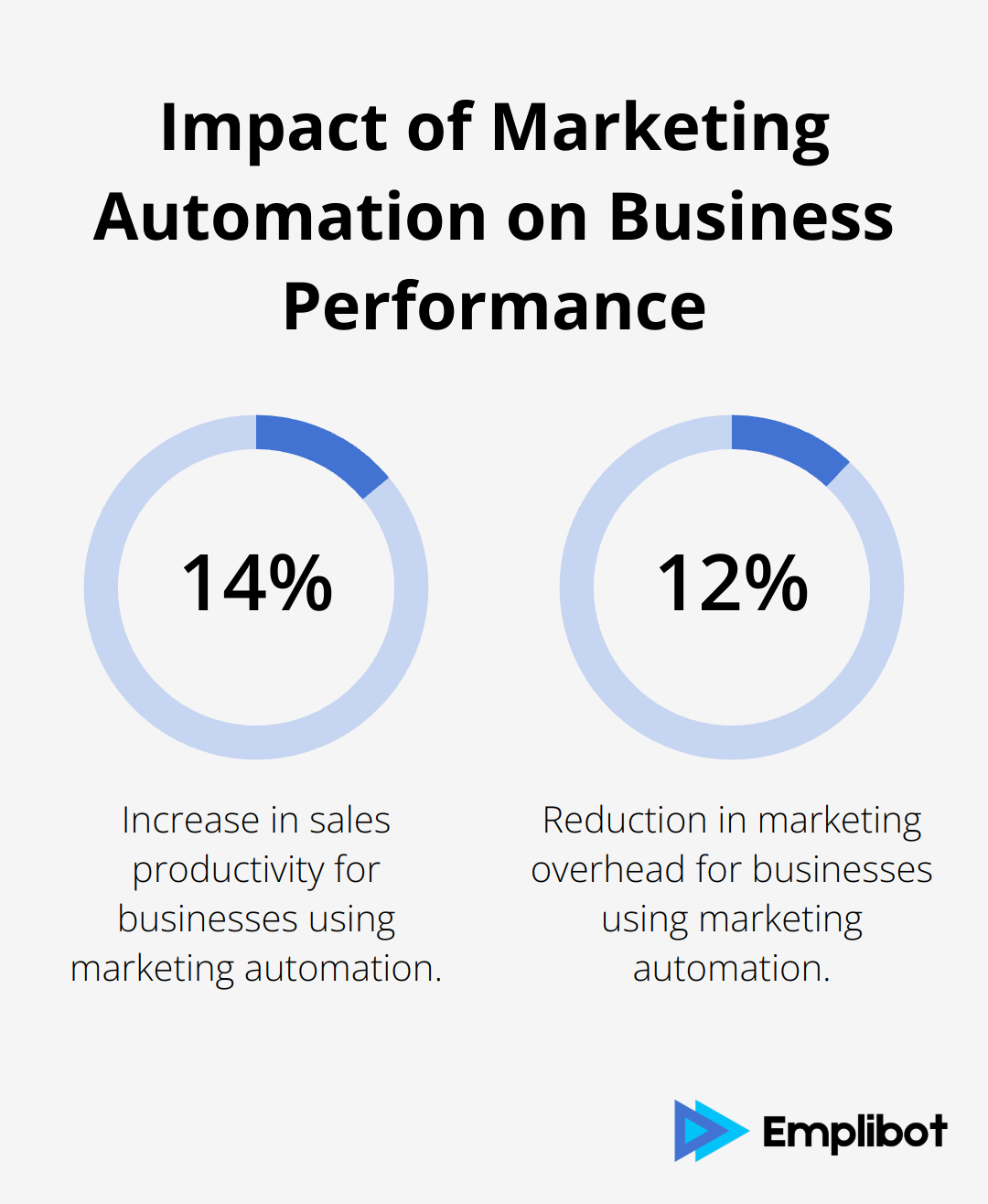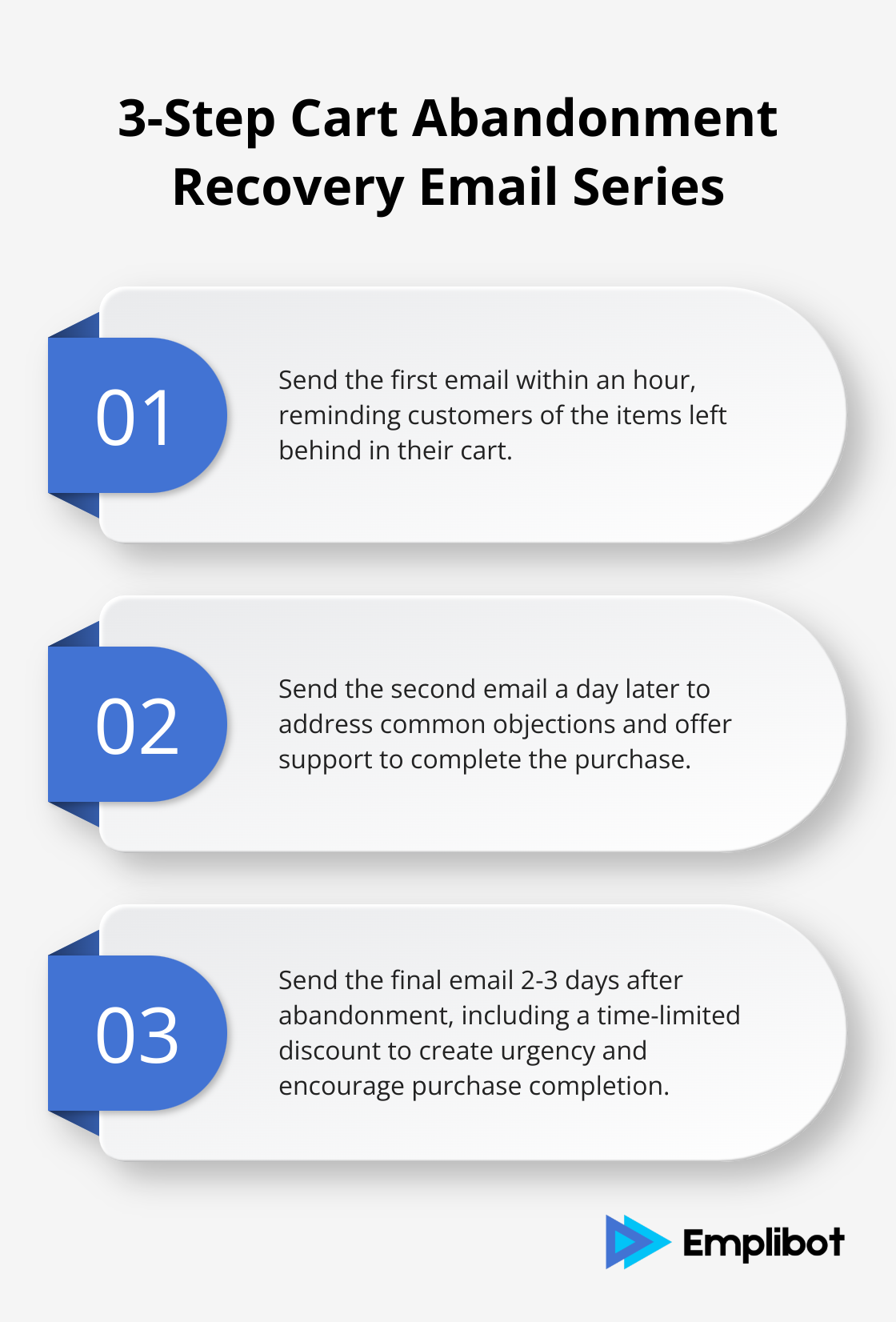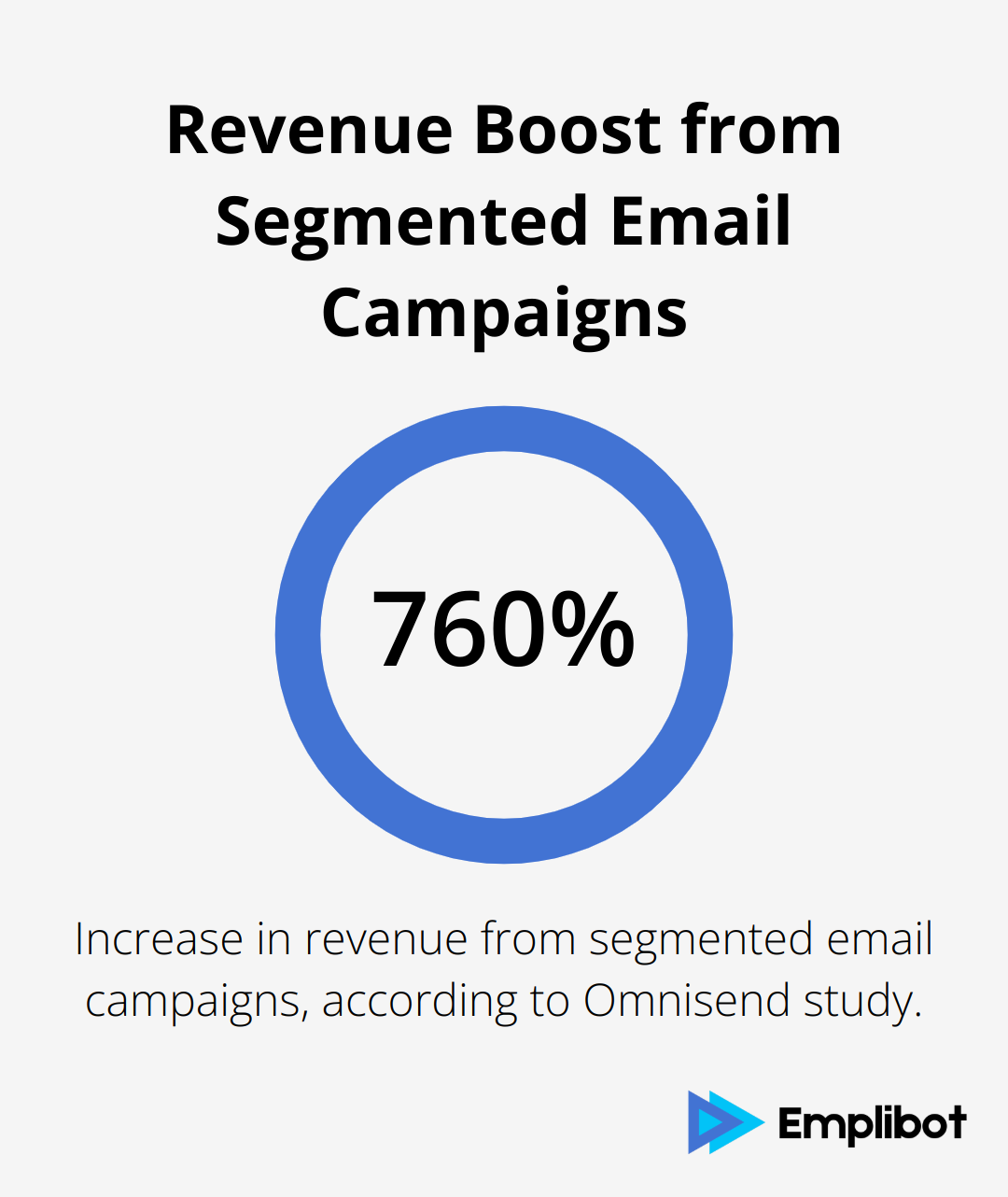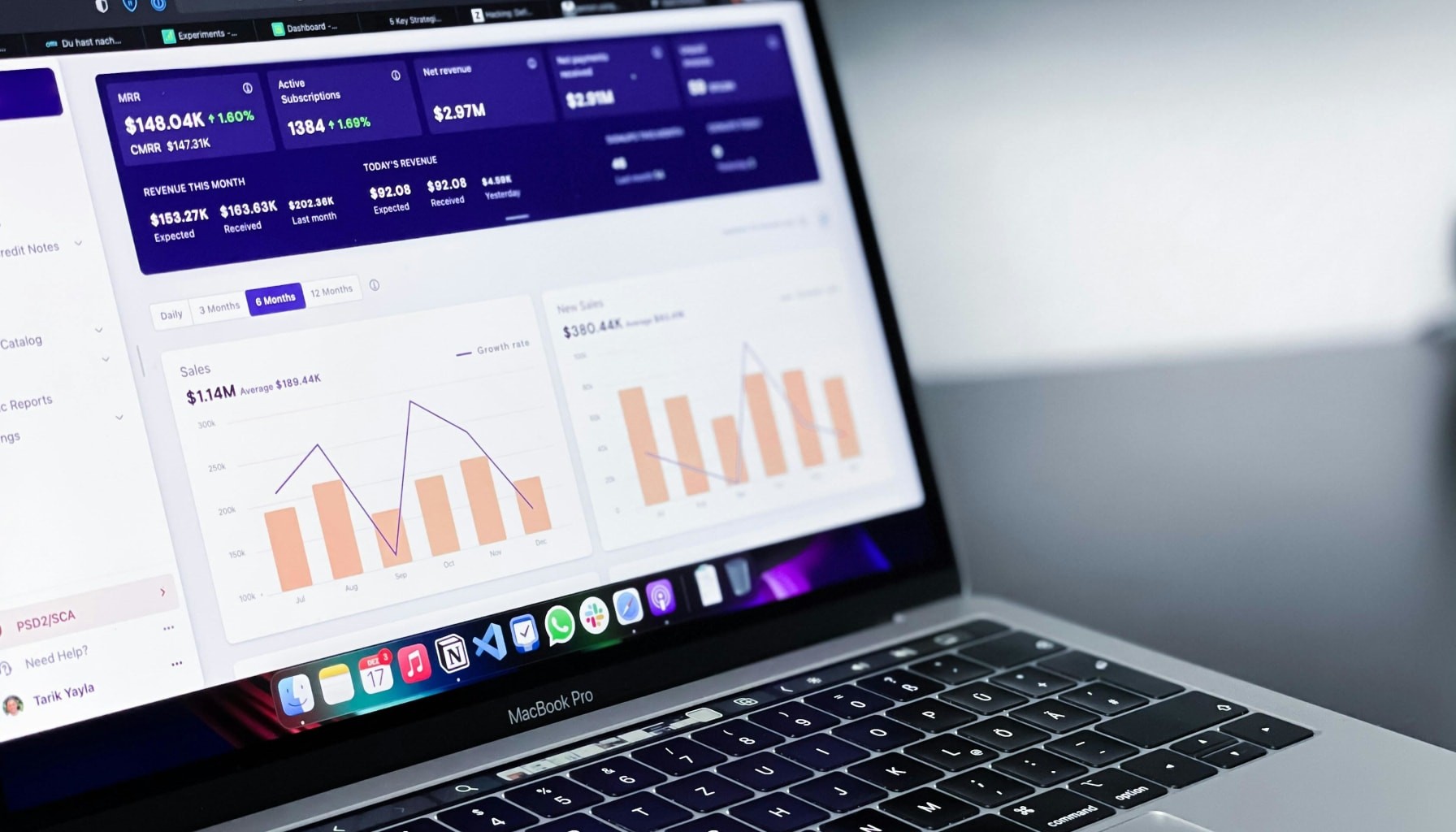At Emplibot, we’ve seen firsthand how Shopify marketing automation can transform e-commerce businesses.
Automating your marketing efforts on Shopify isn’t just a trend – it’s a game-changer for online stores looking to boost sales and efficiency.
In this post, we’ll explore the most effective Shopify marketing automation strategies and tools to help you maximize your store’s potential.
What Is Shopify Marketing Automation?
The Power of Automated Marketing
Shopify marketing automation transforms e-commerce businesses by leveraging technology to streamline and optimize marketing efforts. It boosts sales and customer engagement without increasing workload. Shopify’s tools enable store owners to set up systems that automatically handle tasks like email campaigns, social media posts, and customer segmentation. For instance, you can create an email sequence that triggers when a customer abandons their cart, sending reminders and offers to complete their purchase. Cart abandonment recovery strategies can help turn browsers into buyers and boost conversions.
Key Features That Drive Results
One of the most impactful features of Shopify’s marketing automation is its ability to personalize customer experiences. You can establish rules to send tailored product recommendations based on a customer’s browsing history or past purchases. Personalization can improve target customers’ buying experience, build brand trust, and drive business.
Another powerful feature is the ability to segment your customer base. Automatically grouping customers based on their behavior or demographics allows you to send more targeted and relevant marketing messages. This targeted approach can lead to a 760% increase in email revenue (according to Campaign Monitor).
Measurable Benefits for Your Store
Marketing automation in your Shopify store yields significant benefits. Businesses using marketing automation have seen a 14.5% increase in sales productivity and a 12.2% reduction in marketing overhead (as per Nucleus Research).

Automation also allows for consistent and timely communication with your customers. You can set up welcome emails for new subscribers, birthday offers, and re-engagement campaigns for inactive customers. This consistent communication can increase customer retention rates by 90% (according to Invesp).
Scaling Your Marketing Efforts
As your business expands, your marketing efforts can grow with it, without requiring a proportional increase in time or resources. Automation tools set up your Shopify store for scalable growth. You’re not just working smarter; you’re positioning your business for long-term success.
The next chapter will explore essential marketing automation strategies specifically tailored for Shopify stores, helping you maximize the potential of these powerful tools.
How to Supercharge Your Shopify Store with Automation
Master Email Automation
Email marketing proves to be a powerhouse for e-commerce, with an average ROI of $42 for every $1 spent (Data & Marketing Association). The key to unlock this potential lies in automation.
Set up a welcome series for new subscribers. This can increase long-term engagement by up to 33% (Invesp). Design a sequence of 3-5 emails to introduce your brand, showcase best-sellers, and offer a first-purchase discount.
Implement a post-purchase sequence. Thank customers for their order, provide tracking information, and ask for feedback. This enhances the customer experience and opens the door for repeat purchases.
Recover Lost Sales
Cart abandonment presents a significant challenge for e-commerce stores, with an average rate of 70.19% (Baymard Institute). However, automated recovery campaigns can reclaim a substantial portion of these lost sales.
Create a series of 3 emails triggered when a customer abandons their cart:
- Send the first within an hour, reminding them of the items left behind.
- Send the second a day later to address common objections and offer support.
- Send the final email 2-3 days after abandonment, including a time-limited discount to create urgency.
Moosend reports that 10.7% of cart abandonment emails result in a purchase. This strategy can potentially recover thousands in lost revenue.

Personalize the Shopping Experience
Personalization is no longer a luxury-it’s an expectation. 80% of consumers are more likely to make a purchase when brands offer personalized experiences.
Use Shopify’s built-in features or third-party apps to create automated product recommendations based on browsing history and past purchases. Display these recommendations on product pages, in email campaigns, and even in abandoned cart emails.
Consider implementing a loyalty program that rewards customers for purchases and engagement. 79% of consumers say loyalty programs make them more likely to continue doing business with brands (Bond).
Automate Social Media
Social media is a crucial channel for e-commerce, but managing multiple platforms can consume time. Automation tools can schedule posts, curate content, and even respond to common inquiries.
Use tools that integrate with your Shopify store to automatically share new products or promotions across your social channels. This ensures consistent messaging and saves hours of manual work.
Set up automated responses for frequently asked questions on platforms like Facebook Messenger. This improves response times and customer satisfaction while freeing up your team to handle more complex inquiries.
These automation strategies create a more efficient, personalized, and profitable Shopify store. The next chapter will explore the tools and apps that can take your Shopify marketing automation to the next level.
Which Tools Supercharge Shopify Marketing Automation?
Shopify’s Built-in Automation Power
Shopify’s marketing automation tools stand out as powerful native tools for email marketing automation. They allow you to engage customers and increase conversions with email marketing. With Shopify’s tools, you can easily set up welcome series, abandoned cart reminders, and post-purchase follow-ups. The platform’s integration with your store data ensures highly personalized content.
Shopify Flow is another native automation tool that many overlook. It enables you to create custom workflows for various store processes, including marketing tasks. For example, you can automatically tag customers based on their purchase history, which triggers specific email campaigns or loyalty rewards.
Third-party Apps for Advanced Automation
While Shopify’s native tools impress, third-party apps can provide more advanced features for specific needs. Klaviyo is a popular choice for email marketing automation, offering advanced segmentation and personalization capabilities. A study by Omnisend shows that segmented campaigns drive a 760% increase in revenue.

For social media automation, Buffer integrates seamlessly with Shopify. It allows you to schedule posts and analyze performance across multiple platforms (saving hours of manual work each week).
Privy is another powerful app for Shopify stores. It focuses on conversion optimization through pop-ups, email marketing, and SMS campaigns.
Choosing the Right Automation Tool
When you select a marketing automation tool for your Shopify store, consider your specific needs and budget. Native Shopify tools are often more cost-effective and easier to integrate, but third-party apps may offer more advanced features.
Emplibot stands out as a top choice for businesses that look for a comprehensive automation solution. It handles everything from content creation to distribution across multiple platforms, which makes it an excellent option for stores that want to scale their marketing efforts efficiently.
For smaller stores or those that just start with automation, Shopify’s native tools combined with a few targeted apps like Klaviyo or Privy can provide a solid foundation. As your store grows and your needs become more complex, you can explore more advanced solutions.
Optimizing Your Automation Stack
The e-commerce landscape constantly evolves. To stay ahead, you must adapt your tools and strategies accordingly. Try to review your automation tools regularly. This practice ensures that your chosen solutions continue to meet your evolving needs and deliver the best results for your Shopify store.
Integration and Compatibility
When you build your automation stack, consider how well different tools work together. Seamless integration between your chosen apps and Shopify’s native features can significantly enhance your overall marketing efficiency. Look for tools that offer direct Shopify integrations or use platforms like Zapier to connect different services.
By supercharging your campaigns with marketing automation, you can simplify content management and maximize your social media impact, leading to more efficient and effective marketing for your Shopify store.
Final Thoughts
Shopify marketing automation revolutionizes e-commerce operations, offering powerful tools to boost sales and efficiency. Store owners who implement automated strategies increase productivity, reduce marketing overhead, and provide personalized experiences that drive customer loyalty and conversions. Email marketing workflows, abandoned cart recovery campaigns, and personalized product recommendations yield substantial returns on investment and can be set up using Shopify’s native tools or third-party apps.
Successful marketing automation requires continuous optimization and testing. Analyze your automated campaigns’ performance, refine strategies based on data insights, and stay updated with the latest e-commerce marketing trends and technologies. As you scale your Shopify store, consider leveraging more advanced automation tools to handle complex marketing tasks.
Emplibot offers a comprehensive solution for businesses looking to automate their content marketing efforts across multiple platforms. This approach saves time and resources while driving traffic and sales (a win-win for any e-commerce business). Start small with Shopify marketing automation, measure your results, and gradually expand your efforts to unlock your store’s full potential.

